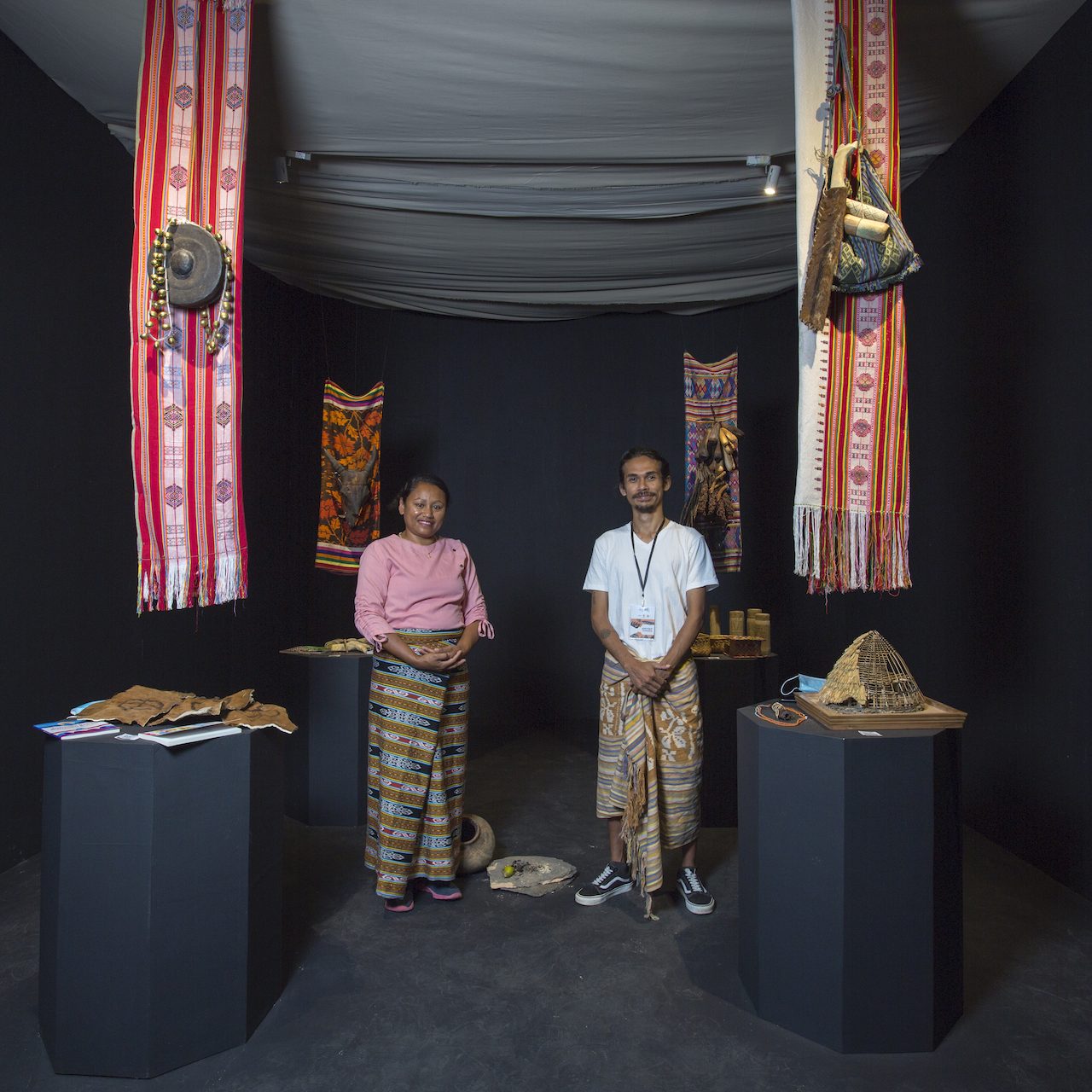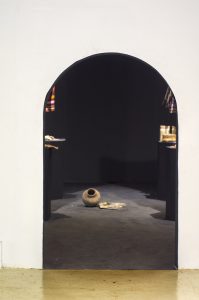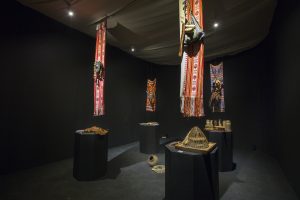Lakoat.Kujawas (South Central Timor)
Lakoat.Kujawas is art and cultural community from Taiftob, Mollo, Timor initiated by Dicky Senda. Since 2016 Lakoat.Kujawat has actively developed a public library, creative writing classes and archival spaces for art and culture of Mollo. Lakoat.Kujawas was established to offer alternate education and preserve situated knowledge to younger generation of Mollo. Lakoat (loquat) and kujawas (guava) are two fruits that are familiar to the daily life of the children in Mollo. Both represent happiness, potential, and ever-growing hope from the villages in Mollo.
By excavating local knowledge, Lakoat.Kujawas builds collective memories as a means to empower the local youths in tackling the contemporary problems. This community opens a residency program every year for artists, researchers, architects, students or teacher from all over Indonesia or around the world.
The archiving efforts to document local knowledge were performed through several projects such as Mnahat Fe’u Gastronomy Tour, Skol Tamolok cultural school, creative writing class To The Lighthouse and resulted in several books and art exhibitions. Lakoat.Kujawas also engaged in social entrepreneurship, including pioneering ecotourism homestays as well as marketing local Mollo products such as traditional woven fabrics, coffee, honey, and organic lu’at sambal.
The community also active in collecting local food seeds, documenting Mollo’s cuisine through recipe archives in the form of spoken narratives.
“Pah Afatis, Sonaf Aneot” (2021)
Installation of Archived Books, Cloths, Ritual Items, Fermented Food
Variable size
Situated knowledge of Mollo -where Lakoat.Kujawas group is located- has gradually disappeared since the Dutch colonial era which brought along with them the influence of religion, that negatively stigmatized the value of life and human relations with nature and non-humans. One of the said values of life is represented in Mollo traditional house called Uem Bubu with its typical wisdom “fatu, nasi, noel, afu a fatis neu monit mansian”, which means that stone, forests, water and land are reflection of human body. Uem Bubu conveys abundant knowledge and biodiversity closely related to the clan identity, language, and even gastronomy.
With the reconstruction of Uem Bubu in this exhibition, Lakoat.Kujawas would like to share their archiving work and contextual knowledge related to agriculture, food preservation, language, relations with nature and animals, as well as medicine. Such work increasingly finds its urgency in the middle of rapid development projects in the form of industrial forest plantations, mining, expropriation of customary land, politics of rice, ‘Jawakarta’ (Java and Jakarta-centered) education, and various new welfare standards. The efforts to reconstruct the house of the Mollo people, both physically and narratively as Sonaf Honis —the house of life–is today’s generation’s endeavor to adapt to different issues of climate, food, and even human trafficking.



